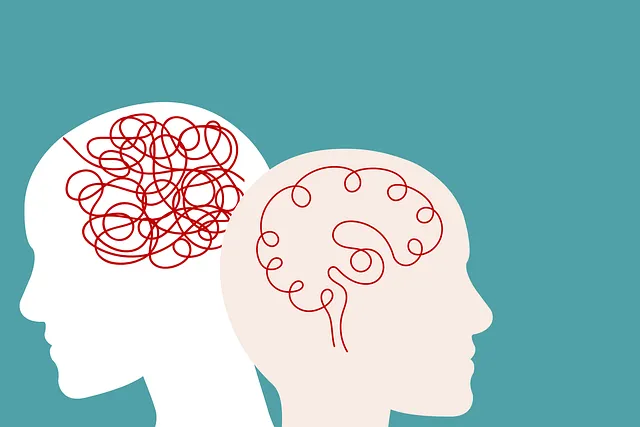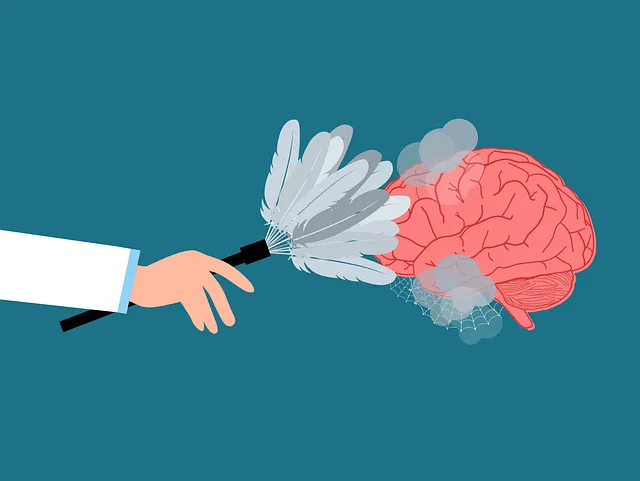Northglenn Kaiser Permanente's commitment to cultural competency in mental health services is evident through tailored, inclusive practices that respect diverse communities' values and beliefs. Comprehensive training equips healthcare professionals with tools to navigate cultural differences, mitigate biases, and offer personalized treatment approaches. Initiatives like Crisis Intervention Guidance, Stress Management Workshops, and Compassion Cultivation Practices enhance patient outcomes, build trust, and promote an environment of understanding, demonstrating Northglenn Kaiser Permanente's leadership in culturally competent mental health care. Rigorous evaluation methods measure the impact of these programs on provider skills and patient satisfaction, ensuring continuous improvement in healthcare delivery.
Healthcare provider cultural competency training is an essential pillar for delivering quality patient care, especially in diverse communities. This article explores the critical need for cultural competence within healthcare, focusing on its impact on bias and perception. We present a case study of Northglenn Kaiser Permanente’s mental health services, highlighting successful culturally sensitive practices. Additionally, we offer effective strategies for responsive mental health care and discuss evaluation methods to measure the success of cultural competency programs in healthcare organizations, including Northglenn Kaiser Permanente.
- Understanding Cultural Competency in Healthcare: A Necessity for Quality Patient Care
- The Impact of Cultural Competency Training on Healthcare Provider Bias and Perception
- Northglenn Kaiser Permanente Mental Health Services: A Case Study on Cultural Sensitivity
- Effective Strategies for Delivering Culturally Responsive Mental Health Care
- Measuring Success: Evaluating the Effectiveness of Cultural Competency Programs in Healthcare Organizations
Understanding Cultural Competency in Healthcare: A Necessity for Quality Patient Care

In today’s diverse society, cultural competency within healthcare is no longer a luxury but an essential component for delivering quality patient care, especially in mental health services like those offered by Northglenn Kaiser Permanente. Cultural sensitivity means understanding and respecting the unique values, beliefs, and practices of different communities, ensuring that all patients receive personalized and equitable treatment. For mental health professionals, this involves being equipped to navigate complex issues such as anxiety relief tailored to a patient’s cultural context, rather than applying uniform approaches that might overlook specific needs or traditions.
The importance of cultural competency training cannot be overstated, especially when considering the potential risks associated with mental health practice. A thorough risk assessment for professionals in this field must include an awareness of cultural sensitivities. By embracing cultural competency, healthcare providers can foster stronger patient-provider relationships, improve communication, and ultimately enhance the effectiveness of mental health services like those available at Northglenn Kaiser Permanente. This approach ensures that anxiety relief and other treatments are not only accessible but also culturally appropriate, addressing not just symptoms but the whole person within their community’s framework.
The Impact of Cultural Competency Training on Healthcare Provider Bias and Perception

Cultural competency training is transforming healthcare delivery by addressing biases and improving provider perceptions, especially in diverse communities like Northglenn where Kaiser Permanente offers comprehensive mental health services. This type of training equips healthcare providers with essential tools to navigate cultural differences, fostering more inclusive care environments. By learning about various cultural contexts, providers gain deeper insights into patients’ backgrounds, which can influence their understanding and approach to treatment.
For instance, the Crisis Intervention Guidance program incorporated into the training curriculum helps professionals respond appropriately to cultural crises, ensuring effective support for diverse populations. Social Skills Training and Positive Thinking exercises further enhance interactions, allowing healthcare staff to build stronger relationships with patients from different cultural backgrounds. These initiatives collectively contribute to more accurate assessments and tailored interventions, ultimately improving patient outcomes in mental health services at Northglenn Kaiser Permanente.
Northglenn Kaiser Permanente Mental Health Services: A Case Study on Cultural Sensitivity

Northglenn Kaiser Permanente Mental Health Services stands as a shining example of cultural competency in action within healthcare. This case study highlights their dedicated efforts to foster an inclusive environment, addressing the unique needs of a diverse patient population. By integrating Compassion Cultivation Practices, the facility has created a safe space where individuals from various backgrounds and cultures can access mental health support without fear or prejudice.
The team at Northglenn Kaiser Permanente recognizes that understanding cultural nuances is paramount in reducing the Mental Illness Stigma. They employ innovative strategies, such as incorporating Mind Over Matter Principles into treatment plans, to empower patients and promote healing. Through these initiatives, the mental health services provider not only improves patient outcomes but also cultivates a deeper sense of trust and respect within the community it serves.
Effective Strategies for Delivering Culturally Responsive Mental Health Care

In delivering culturally responsive mental health care, healthcare providers at Northglenn Kaiser Permanente play a pivotal role in fostering inclusive and effective services. This involves embracing strategies that respect and understand diverse cultural backgrounds, beliefs, and values. One key approach is incorporating self-awareness exercises into training programs to help staff recognize their own biases and assumptions. By increasing self-awareness, mental health professionals can better navigate the unique needs of patients from various cultures, ensuring they feel heard, understood, and respected.
Additionally, Stress Management Workshops Organization within Northglenn Kaiser Permanente offers valuable resources like interactive workshops and group discussions focused on teaching stress reduction methods tailored to different cultural contexts. These initiatives not only enhance patient outcomes but also create a more inclusive environment where individuals from diverse backgrounds can access mental health services that resonate with their specific needs. Incorporating these strategies, as part of ongoing training, enables the organization to provide culturally competent care, ultimately improving patient satisfaction and mental well-being.
Measuring Success: Evaluating the Effectiveness of Cultural Competency Programs in Healthcare Organizations

Measuring success in healthcare provider cultural competency training is paramount to ensure that programs are effective and positively impact patient care. Organizations like Northglenn Kaiser Permanente’s mental health services have recognized this, integrating rigorous evaluation methods into their cultural competency initiatives. These evaluations go beyond mere participant satisfaction surveys to assess tangible improvements in healthcare delivery.
One way to gauge effectiveness is by tracking changes in social skills training, emotional regulation, and coping skills development among providers. For instance, pre- and post-training assessments can measure participants’ ability to navigate culturally diverse interactions, manage their own emotions in stressful situations, and teach these strategies to patients. Such data provides a clear picture of whether the programs are fostering meaningful cultural competency, ultimately leading to improved patient outcomes and more empathetic healthcare services.
Cultural competency training is no longer a choice but an indispensable tool for healthcare providers. As evidenced by the case study on Northglenn Kaiser Permanente mental health services, culturally responsive care improves patient outcomes and enhances provider-patient relationships. By addressing biases and perceptions through targeted training, healthcare organizations can foster inclusive environments that prioritize diverse communities’ unique needs. Measuring success through rigorous evaluation ensures programs remain effective and adaptable to a constantly evolving landscape of cultural diversity in healthcare.






